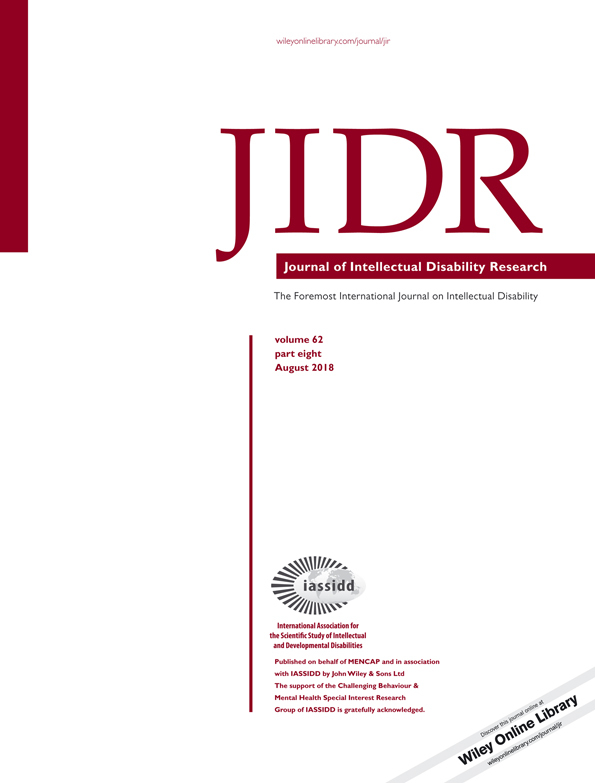Multiple traumatisation and subsequent psychopathology in people with intellectual disabilities and DSM-5 PTSD: a preliminary study
Abstract
Background
Individuals with intellectual disability (ID) are at greater risk of exposure to traumatic life events compared with the non-ID population. Yet no study to date has examined the role of multiple traumatisation and subsequent psychopathology in people with ID. The aim of this study was to explore the association between multiple traumatisation and subsequent mental health.
Methods
A preliminary cross-sectional study involving 33 participants with DSM-5 post-traumatic stress disorder completed self-report questionnaires on exposure to traumatic life events and post-traumatic stress disorder symptoms, anxiety, depression and general distress.
Results
A proportion of 42.4% of the sample reported multiple traumatisation, including exposure to life events in both childhood and adulthood. Those who reported exposure to life events in childhood and adulthood reported significantly higher risk of harm, depression and general psychological distress compared with those who reported exposure to life events only in adulthood.
Conclusions
Preliminary results indicate that more severe psychopathology is associated with multiple traumatisation in childhood and adulthood compared with trauma experienced solely in adulthood.




